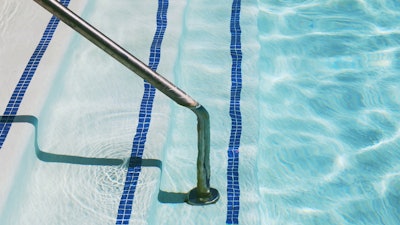
After a summer in which the City of Syracuse, N.Y., couldn't open three of its outdoor pools because of staffing, officials are taking a different approach to recruiting.
For the 2023 season, Syracuse is planning to pay for certifications for any residents who agree to work the full summer at city pools.
The city had charged $105 for certifications and $80 to get re-certified this year, as reported by Syracuse.com.
The city's goal in covering the fees for 2023 is to remove a hurdle that might have kept people from seeking the job.
“It’s imperative that we’re able to open our pools,” said Rasheada Caldwell, the chair of the Syracuse Common Council’s committee for parks, recreation and youth programs. “This isn’t (a new problem). We’re trying to figure out what the barriers are. One of the barriers is, ‘You’ve got to pay to get a job?’ I want to see all the community pools open, the city pools open and the kids in our community to be part of it.”
The city did not open pools this summer at Lincoln, McKinley and Wilson parks. It did open pools at Thornden, Onondaga, Schiller, Kirk and Burnet parks. The city’s two indoor pools at the Valley and Southwest Community centers are normally closed during the summer.
When fully staffed, the city employs 150 lifeguards, Syracuse.com reported. This year the city had about 100 lifeguards, with that number fluctuating throughout the season. The city was able to open all of its pools as recently as 2019.
Caldwell said she pitched the idea of becoming a lifeguard to young people around the city during the middle of this year’s shortage.
She said some expressed an inability to pay for training or to pay for the type of swimsuit they’d want to wear publicly for a job. Others balked at the principle of having to pay just to be able to work.
Lifeguards taking advantage of the free certification would be expected to work at least 20 hours per week. Lifeguards must be 15 years old. The certification classes require 40 hours of training.
As part of the new approach, lifeguards would sign a contract with the city in order to have their certification fees waived. If that lifeguard left their position before the end of the summer, the normal cost of the classes would be deducted from their final paycheck.
Lifeguards who want to get certified through the city but work elsewhere can still pay for their training.
Syracuse.com reported that the Common Council unanimously passed the proposal during its meeting on Monday.
Parks commissioner Julie LaFave said the city tried to tackle the biggest obstacle to staffing this summer, raising its pay to $16-$22 per hour from $15-$20. She said the city could bump that number again next year.
She said that the city’s biggest competition for attracting lifeguards are state parks. Lifeguards working for the state start at $20 per hour. LaFave said the city has been having conversations with the state and county to try to ensure the city’s pay is competitive.
The American Lifeguard Association said that one-third of the country’s public pools were impacted by a national lifeguard shortage this year.
Buffalo was unable to open any of its pools.
“It’s going to be worse (next summer),” Bernard Fisher, the director of health and safety at the association, said. “The training needs to be done now, or no later than the spring, to have them ready for the summer. We’re not seeing the numbers to stock up the stockpile.”





































